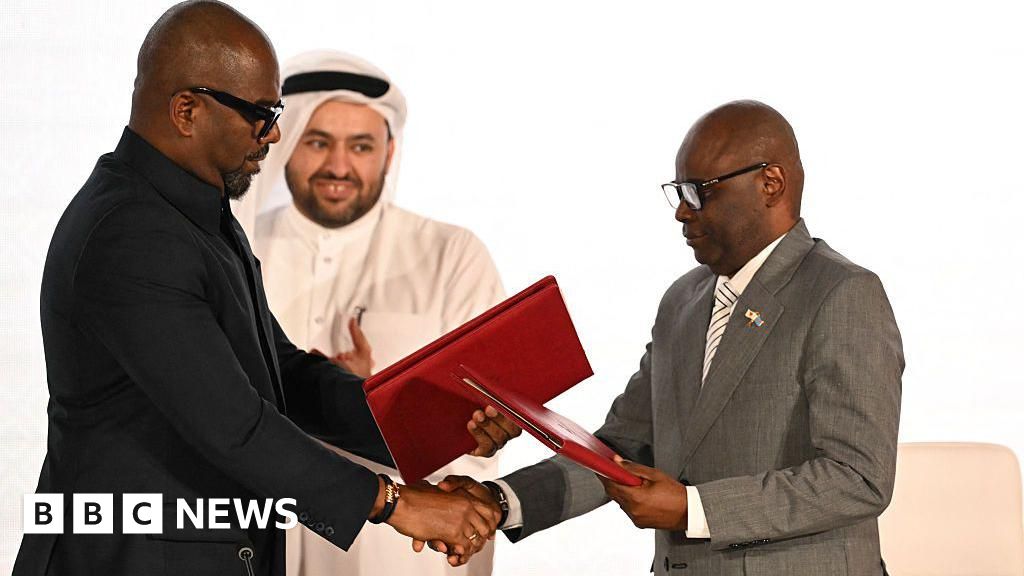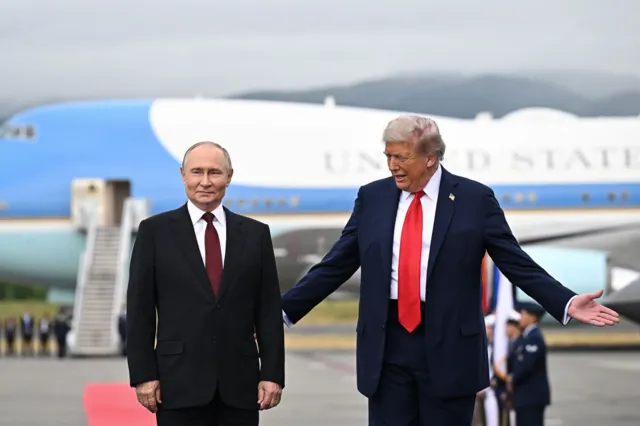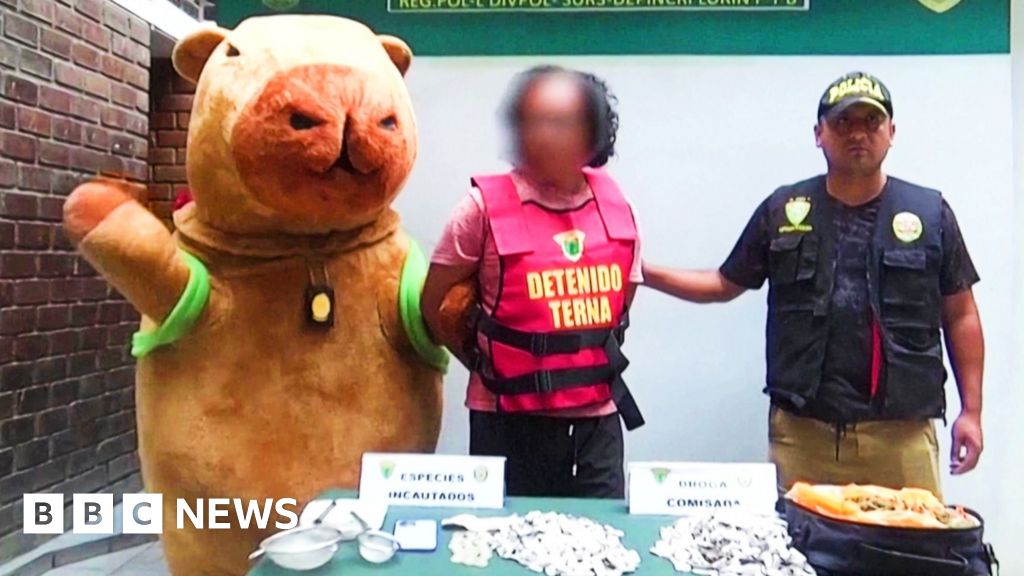
Rwandan-backed M23 rebels and the government of the Democratic Republic of Congo have signed a framework for peace in the east of the country.
The ceremony was held in Qatar, which along with the US and the African Union, has been trying to mediate an end to decades of conflict in the resource-rich region.
Earlier this year, the M23 captured the eastern region’s main cities of Goma and Bukavu. Previous attempts to secure peace have failed.
The US’s Africa envoy Massad Boulos said the document covered eight protocols and that most still required work. He also acknowledged that prisoner exchanges and ceasefire monitoring had been slower than originally hoped.
Kinshasa is demanding the withdrawal of Rwandan troops from its territory.
Kigali says this can happen once the Congo-based FDLR rebel militia is disbanded. It is largely made up of ethnic Hutus linked to the 1994 Rwandan genocide.
The new framework also addresses humanitarian access, the return of displaced people and protection of the judiciary, Boulous is quoted as saying by the AFP agency.
It builds on a declaration of principles signed by the two sides in Doha in July, as well as a deal made in the same city last month on the monitoring of an eventual ceasefire.
Before that, in June, talks between Rwanda and DR Congo brokered by Washington resulted in the signing of a peace deal that was hailed by US President Donald Trump as a “a glorious triumph” but was swiftly violated by the warring parties.
The M23 is one of the biggest parties in this conflict, but was not directly involved in the US-brokered ceasefire deal. It has always favoured the talks mediated by Qatar, saying they will address “the root causes” of the conflict.
Decades of conflict escalated in January when M23 rebels seized control of large parts of eastern DR Congo including the regional capital, Goma, the city of Bukavu and two airports.
Since January, thousands of people have been killed and hundreds of thousands of civilians forced from their homes.
After the loss of territory, the government in Kinshasa had turned to the US for help, reportedly offering access to critical minerals in exchange for security guarantees. Eastern DR Congo is rich in coltan and other resources vital to the global electronics industries.
Rwanda denies supporting the M23, despite overwhelming evidence, and insists its military presence in the region is a defensive measure against threats posed by armed groups like the FDLR.



